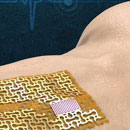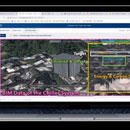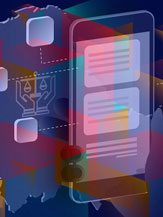A groundbreaking study by the University of South Australia and Flinders University has uncovered a potential game-changer in diag- nosing autism spectrum disorder (ASD) in kids, leveraging artificial intelligence (AI). Using an electroretinogram (ERG) test, which measures reti- nal electrical activity in response to light, researchers employed AI to spot unique patterns aiding in ASD classification.
Involving 217 children aged 5-16 (71 with and 146 without ASD), the study unveiled distinct retinal responses in ASD-diagnosed kids compared to neurotypical peers. Surprisingly, a single flash of light to the right eye revealed the most robust indicator, and AI analysis dramatically slashed testing time. The findings highlighted reduced higher frequency retinal signals in ASD cases.
Dr. Fernando Marmolejo-Ramos underscored the test's potential to revolutionise ASD diagnosis, using the RETeval unit to potentially screen for autism within 10 minutes. This swift, non-invasive method could streamline support for thousands of children on the spectrum, easing the burdens on both parents and kids.
With ASD affecting 1 in 70 Australians (four times more in boys), this test's implications are substantial. Dr. Paul Constable, the project lead, is excited about using ERG and AI for more accurate ASD classification. He stressed the eye-brain connection, a doorway to understanding ASD's brain development.
Furthering the study, Dr. Constable emphasized researching younger chil- dren and other conditions like ADHD to ensure test specificity. Dr. Hugo Posa- da-Quintero echoed the potential in using advanced signal processing and machine learning to analyze retinal responses, advocating for transforming these methods into practical clinical tools.
This collaborative effort opens a new chapter in ASD diagnosis. Inte- grating AI with ERG holds promise for faster, accurate ASD identification. The potential impact on early intervention and support for ASD children is immense, fueling hope for improved outcomes. As research progresses, this innovation could significantly ease the diagnosis journey for countless fami- lies globally.








